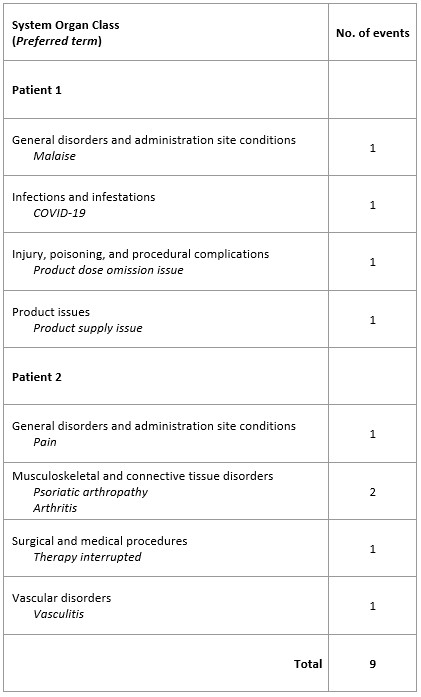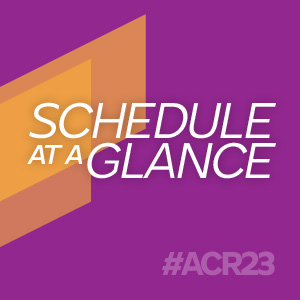Poster Session A
Vasculitis
Session: (0673–0690) Vasculitis – ANCA-Associated Poster I: Treatment Outcomes
0688: Efficacy and Safety Experience with Avacopan Beyond 52 Weeks in the Early Access Program (EAP)
Sunday, November 12, 2023
9:00 AM - 11:00 AM PT
Location: Poster Hall
- CS
Carlo Salvarani, MD
Azienda USL-IRCCS di Reggio Emilia and UNIMORE
Reggio Emilia, Reggio Emilia, ItalyDisclosure information not submitted.
Abstract Poster Presenter(s)
Federico Alberici1, Carlo Salvarani2, Christine Chan3, Achim Obergfell4 and Tamara Popov4, 1Universita degli Studi di Brescia, Brescia, Italy, 2Azienda USL-IRCCS di Reggio Emilia, Reggio Emilia, Italy, 3CSL Vifor, Redwood City, CA, 4CSL Vifor, Glattbrugg, Switzerland
Background/Purpose: Avacopan, a selective C5aR1 inhibitor, has demonstrated efficacy and safety over 52 weeks in patients with anti-neutrophil cytoplasmic antibody (ANCA)-associated vasculitis. However, efficacy and safety data on avacopan beyond 52 weeks are limited. Here, we describe the experience with avacopan beyond 52 weeks from the EAP.
Methods: Safety data in patients with severe, active granulomatosis with polyangiitis (GPA) or microscopic polyangiitis (MPA) within the EAP were recorded in a global safety database from Feb 2019 – Apr 2023. Adverse events (AE) included a lack of effect and other events (i.e., relapse or worsening of disease).
Results: A total of 19 patients were treated with avacopan beyond 52 weeks within the EAP. Average age was 47 years, with 13 patients (68%) diagnosed with GPA and 6 (32%) with MPA. The median duration of therapy was 17 months (range 12–45). A total of 9 AEs were recorded in 2 patients (10.6%) (Table 1). One vasculitis flare was recorded 6 months after avacopan initiation and coincided with an unintended dose reduction to 20 mg BID, due to a product supply issue during COVID. The event was well-managed with rituximab, with no additional use of glucocorticoids, and avacopan 30 mg BID was reinstated. No further cases of a lack of effect, worsening of disease, or disease relapse were reported. Data regarding concomitant medications did not indicate a decline in the patients' status during treatment. No treatment discontinuations due to AEs were recorded.
Conclusion: These results suggest that continuation of avacopan beyond 52 weeks is generally well-tolerated in patients with GPA and MPA and may be effective in terms of disease control. Limitations of this program include low patient number, potential underreporting, and incomplete data.

F. Alberici: AstraZeneca, 1, 2, 6, CSL Vifor, 1, 2, 6; C. Salvarani: CSL Vifor, 1, 2, 6, Eli Lilly, 1, 2, 6; C. Chan: CSL Vifor, 3; A. Obergfell: CSL Vifor, 3; T. Popov: CSL Vifor, 3.
Background/Purpose: Avacopan, a selective C5aR1 inhibitor, has demonstrated efficacy and safety over 52 weeks in patients with anti-neutrophil cytoplasmic antibody (ANCA)-associated vasculitis. However, efficacy and safety data on avacopan beyond 52 weeks are limited. Here, we describe the experience with avacopan beyond 52 weeks from the EAP.
Methods: Safety data in patients with severe, active granulomatosis with polyangiitis (GPA) or microscopic polyangiitis (MPA) within the EAP were recorded in a global safety database from Feb 2019 – Apr 2023. Adverse events (AE) included a lack of effect and other events (i.e., relapse or worsening of disease).
Results: A total of 19 patients were treated with avacopan beyond 52 weeks within the EAP. Average age was 47 years, with 13 patients (68%) diagnosed with GPA and 6 (32%) with MPA. The median duration of therapy was 17 months (range 12–45). A total of 9 AEs were recorded in 2 patients (10.6%) (Table 1). One vasculitis flare was recorded 6 months after avacopan initiation and coincided with an unintended dose reduction to 20 mg BID, due to a product supply issue during COVID. The event was well-managed with rituximab, with no additional use of glucocorticoids, and avacopan 30 mg BID was reinstated. No further cases of a lack of effect, worsening of disease, or disease relapse were reported. Data regarding concomitant medications did not indicate a decline in the patients' status during treatment. No treatment discontinuations due to AEs were recorded.
Conclusion: These results suggest that continuation of avacopan beyond 52 weeks is generally well-tolerated in patients with GPA and MPA and may be effective in terms of disease control. Limitations of this program include low patient number, potential underreporting, and incomplete data.

Table 1. Overview of Safety Events Reported in 2 of 19 Patients Receiving Avacopan Beyond 52 Weeks in the Early Access Program
F. Alberici: AstraZeneca, 1, 2, 6, CSL Vifor, 1, 2, 6; C. Salvarani: CSL Vifor, 1, 2, 6, Eli Lilly, 1, 2, 6; C. Chan: CSL Vifor, 3; A. Obergfell: CSL Vifor, 3; T. Popov: CSL Vifor, 3.



